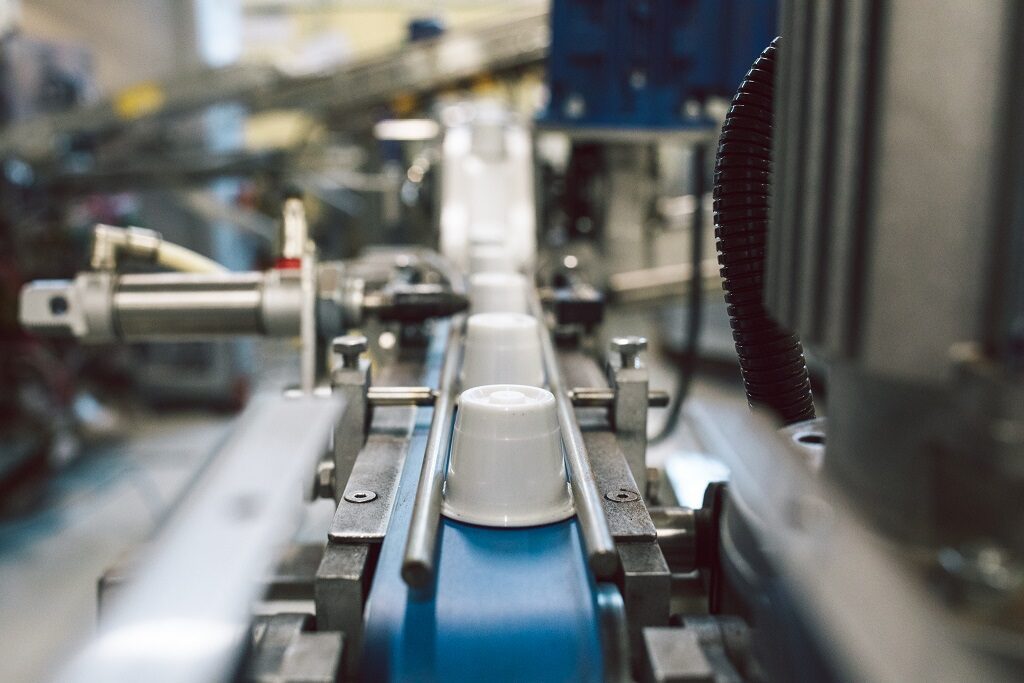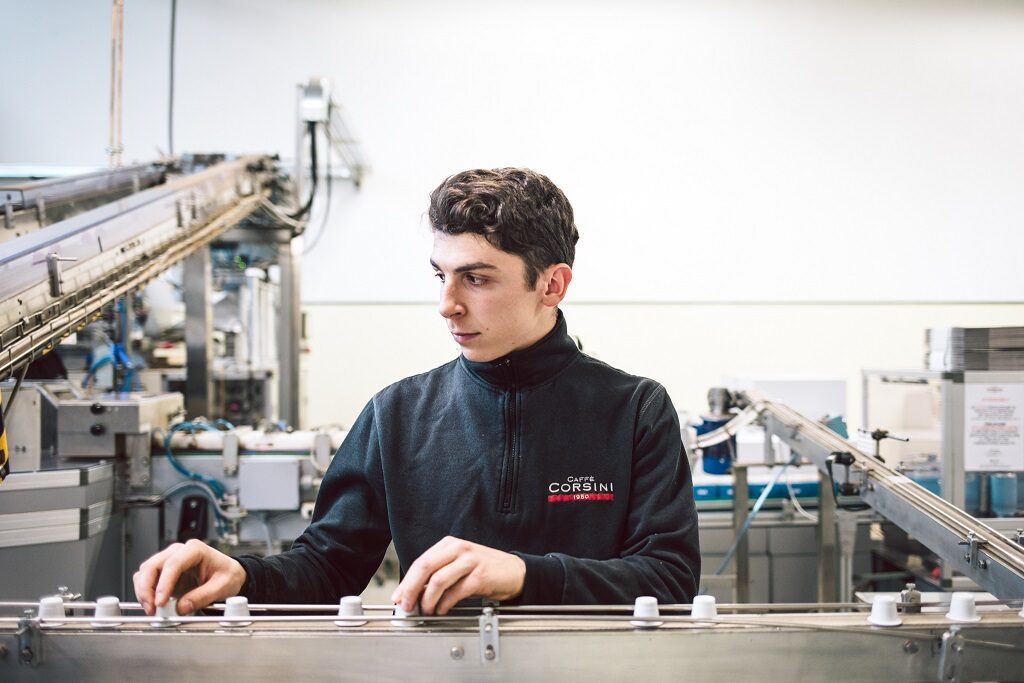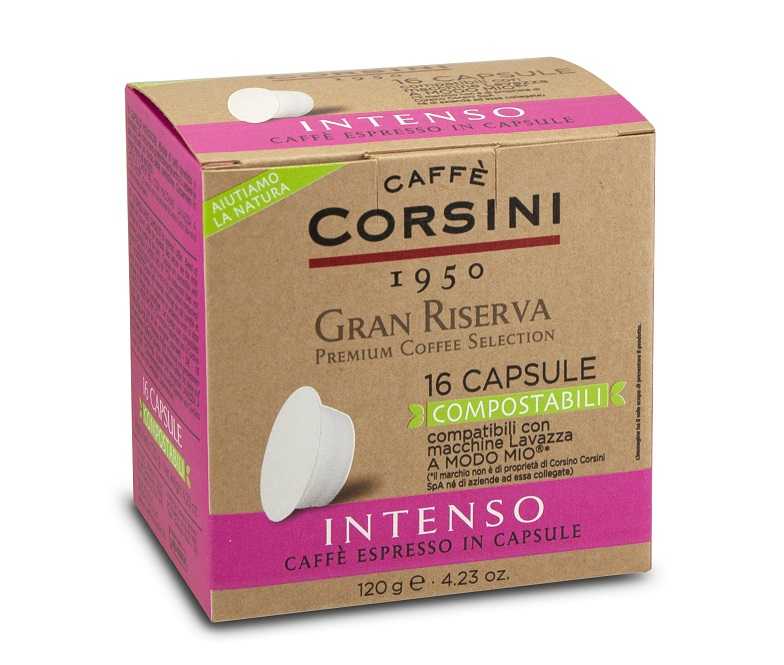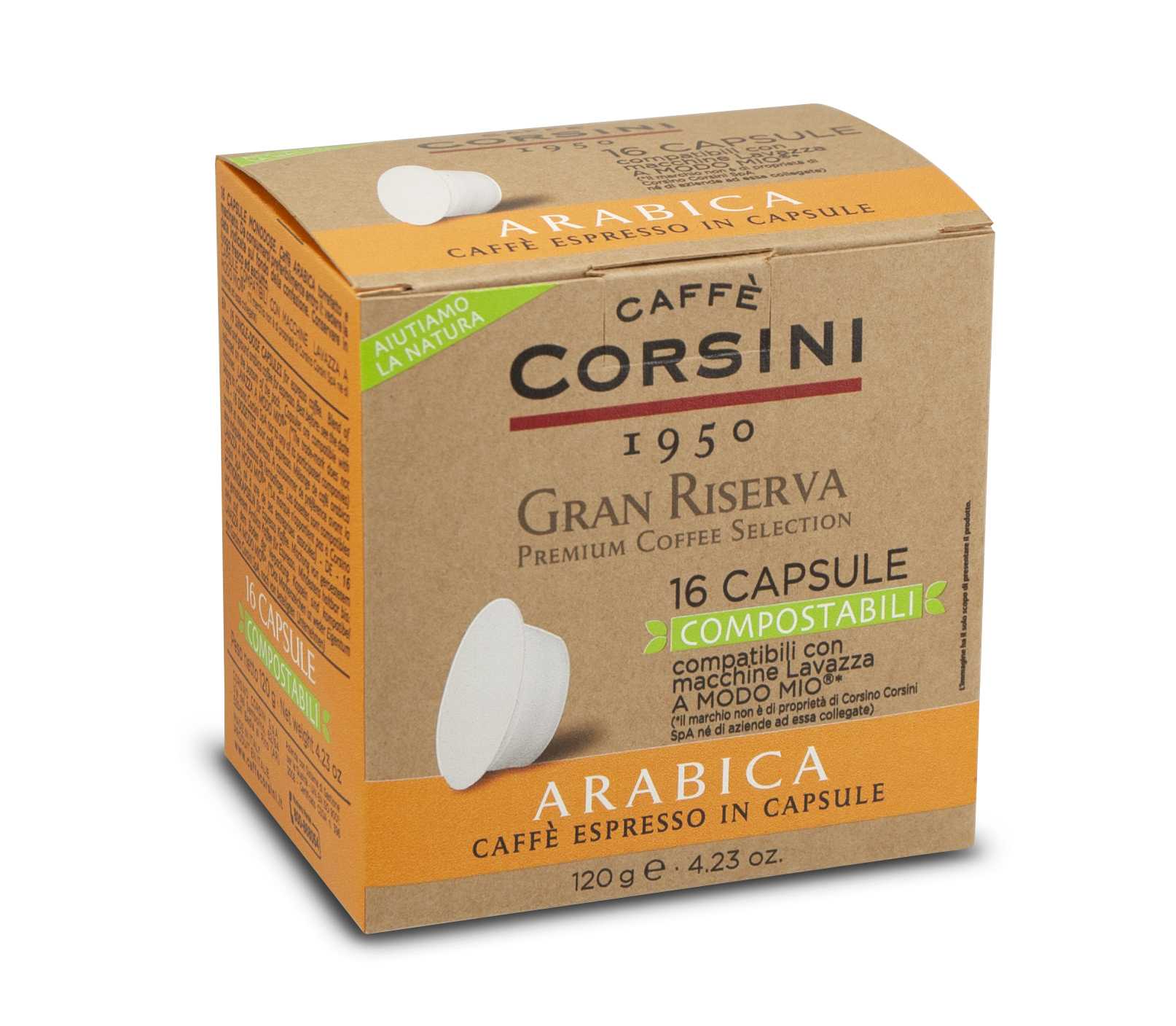Share your coffee stories with us by writing to info@comunicaffe.com.
AREZZO, Italy – The leading company in the food and beverages field Caffè Corsini is becoming even more ecofriendly. During the Anuga Fair in Cologne – Germany – from 5 to 9 October and at Host, Milan from 18 to 22 October, they will present a few novelties: from their new compostable capsules – where the whole capsule can be completely recycled - Nespresso® and Lavazza a Modo Mio® compatible, to their new organic and Fairtrade certified coffees.
The company, founded in 1950 in Arezzo – Italy, and run by Patrick Hoffer, exports its products in 65 countries worldwide, combining the best of the Made in Tuscany artisanship, thanks to a perfect synergy amongst its employees, to a careful study of the latest international consumer trends.
The whole compostable capsules (also on line at www.caffecorsini.it), available for the bestselling line Compagnia dell’Arabica – dedicated exclusively to 100% Arabica mono-origin coffees – and the Corsini brand for both Arabica and intense selections, can be thrown into the compost bin, picked up with the organic waste and brought to industrial composting plants where, both spent capsule and coffee, will be recycled together to become compost, i.e. organic soil fertilizer.

Thanks to the cardboard packet, the whole packaging is now recyclable.
Amongst the novel products, also the brand new Pure Arabica Organic Coffee, exclusively produced in controlled and certified organic farms, where, for generations, small farmers grow their coffee in a natural and organic way, without the use of chemical fertilizers. Using their knowledge of organic agriculture, these farmers have mixed plantations interspersed with fruit trees such as banana, pineapple and papaya trees, thus keeping the soil clear and respecting nature’s natural cycles.

Worth of a mention also the Bio Sumatra Fairtrade certified pure Arabica coffee from organic agriculture Fairtrade-Sumatra single plantation, from Indonesia, and the Caffè Guatemala Slow Food Presidium,grown and processed by the Esquipulas R.L. Huehuetenango Cooperative in Guatemala, following traditional practices.
Caffè Corsini is ever more involved in its commitment for the protection of the environment, started over 10 years ago when they substituted the whole roofing with photovoltaic modules thus saving up to 30% of the necessary energy, and avoiding cutting down more than 300 trees/year. They also recycle paper, cardboard and plastics with a specific compactor.
Both Caffè Corsini and the Ditta Artigianale trademark for specialty coffees are particularlyattentive to the conditions in producing countries, protecting the ecosystem and the local population who work in the coffee field, establishing direct commercial relationships with the smaller producers, recognizing them equal dignity and opportunities for an autonomous development.
 Caffè Corsini was founded in Arezzo in 1950 by Corsino Corsini. Born as a small artisans’ workshop for the processing of coffee, the company has slowly become one of the most important Italian coffee roasters in the world, present in the biggest supermarket chains.
Caffè Corsini was founded in Arezzo in 1950 by Corsino Corsini. Born as a small artisans’ workshop for the processing of coffee, the company has slowly become one of the most important Italian coffee roasters in the world, present in the biggest supermarket chains.
The coffee beans are carefully selected, journeying to the producing countries in search for the purest blends, to bring both to the table and the bar a taste that is not only the produce of numbers and machines, but of faces, aromas and cultures of faraway places.
From the Caffè Corsini line, to the Compagnia dell’Arabica and to the Ditta Artigianale one, our products cover nearly all consumers’ demands: coffee beans, ground coffee, pods, American coffee, barley, organic coffee, as well as ginseng and teas. Caffè Corsini is widely present in the single portion market, offering pods and capsules compatible with all the different extraction methods and the biggest brands of coffee machines, a category that is constantly growing and evolving.















